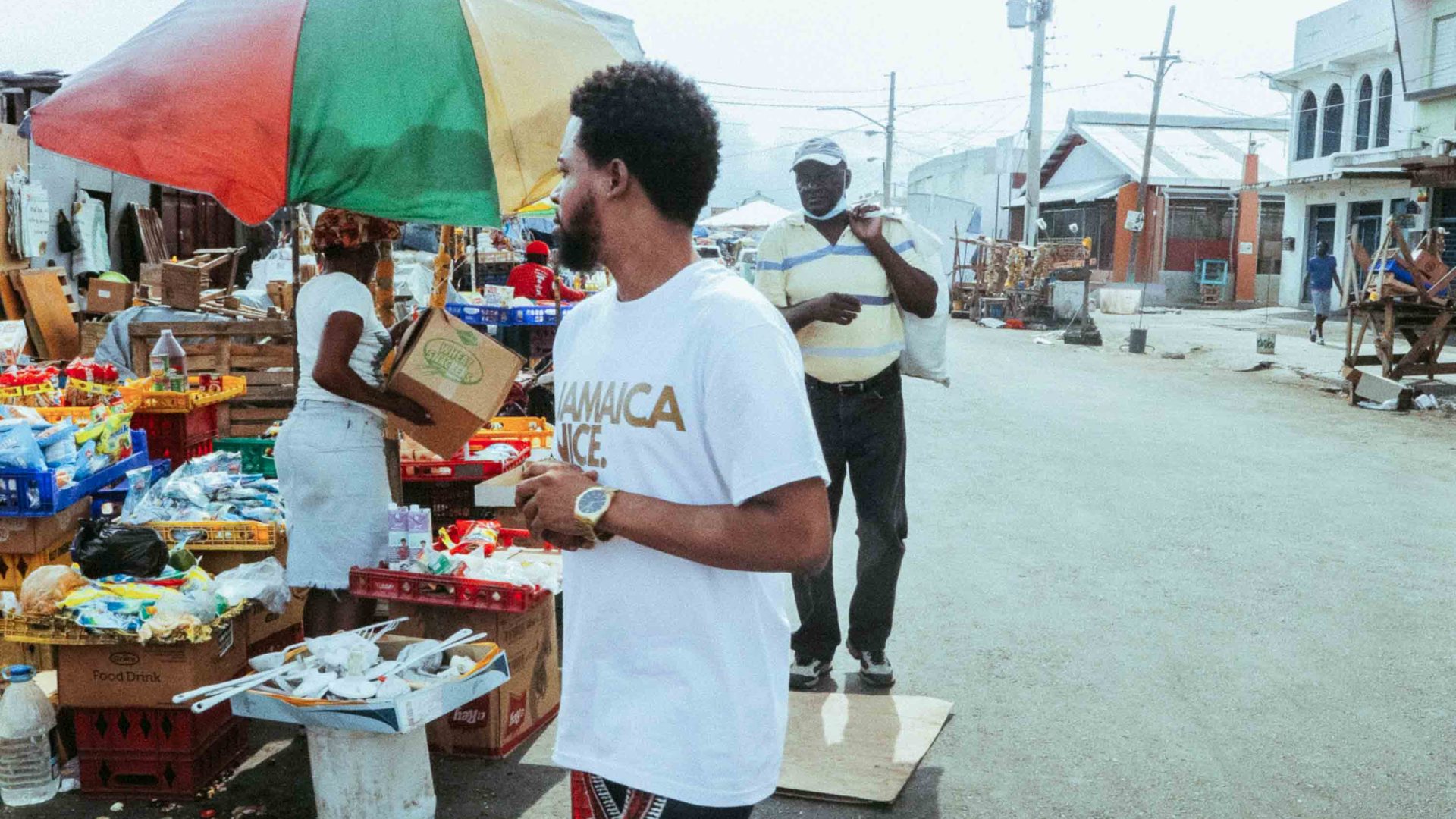
For several generations, writer Ruth C. White’s family has called Kingston home. Now she—and her cousins—want you to add the city to your next Jamaica holiday.

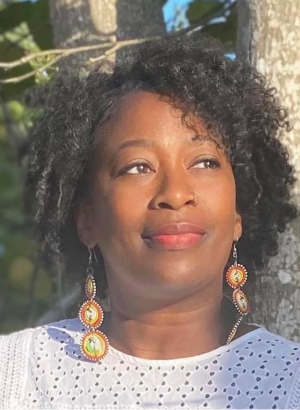
For several generations, writer Ruth C. White’s family has called Kingston home. Now she—and her cousins—want you to add the city to your next Jamaica holiday.
Say ‘Jamaica’ and most people think of white sand, blue water and irie (good) reggae vibes—a perfect holiday with a perfect holiday soundtrack. And this isn’t far from the truth if you choose to spend a few days on Negril’s seven-mile beach or a week at an all-inclusive resort in the Montego Bay area. But as much as Jamaica is a chill vacation spot, it’s also home to a vibrant, fast-paced and thriving capital city—Kingston.
With deep roots—I grew up on the island—and a huge family based in Jamaica, I’ve spent the last few decades exploring Kingston and its surrounds. From its diverse culinary scene to its city-wide murals and late-night dancehall parties, Kingston is so much more than a Bob Marley day tour.
You can find Kingston at the southern base of the Blue Mountains—home to some of the best coffee in the world—and bordered by the Caribbean Sea and the Kingston Harbor, the seventh largest natural harbor in the world. But despite its beneficial location, Kingston wasn’t always meant to be the capital.
Nearby, you can find the historic remains of Port Royal, once known as “the wickedest city on earth” as a base for pirates, buccaneers and general debauchery. Founded and colonized in 1494 by the Spanish, Port Royal became the largest, most prosperous and most rowdy hub of the Caribbean Sea and the center of shipping and commerce of the British West Indies. It was even featured in the Pirates of the Caribbean movie series because of its legacy as a three-century pirate homebase.
“From the music studios where reggae legends have recorded their iconic tracks to the television stations that bring Jamaican stories to life, Kingston is a melting pot of artistic expression.”
- Emprezz Golding
Then on June 7, 1692, the town was mostly destroyed by a devastating earthquake and tsunami. In response to the destruction, Kingston was founded, and later, in 1872, was named the capital of Jamaica.
Today, most of Port Royal city is underwater (though definitely worth adding to your itinerary for any history buffs) and Kingston is home to one-third of Jamaica’s population. Of that population, 90 percent are of African descent, with the remaining population having roots in China, Syria, India, Lebanon, Germany, England, Ireland and Scotland. There’s even a small Jewish community dating back to the 17th century. It’s this diversity that inspired the motto of Jamaica: Out of many people, one people.
When I visit Kingston, I always stay with my cousin Emprezz Golding. Emprezz is a well-known personality in Jamaica, and a big advocate for the city. Having spent her earlier years growing up in Australia, Emprezz was pulled back to Jamaica by the culture, history and generational stories that connect her to the island.
“Kingston is a vibrant hub of creativity and culture that never fails to inspire,” she says over a glass of vino at one of our favorite hangout spots, Uncorked Too. This casual-dining restaurant in the north end of town near Stony Hill was launched over a decade ago by a group of wine-loving friends, and now has three locations across the island—a sign that locals are loving the creative “continental with a Jamaican stab” menu.
According to manager Kathy Evelyn, the menu “takes Jamaican products and local items and makes them extra special.” Like having ackee and saltfish—the national dish of Jamaica, a mix of yellow ackee fruit and salted codfish—on the brunch menu alongside eggs benedict. Or finding a side of callaloo (local chopped spinach-like vegetable dish) listed with the bagels.
Clubhouse Brewery & Tap Room is expanding local brew options beyond the iconic Red Stripe Beer as the first, and currently only, craft brewery in Jamaica. Located on the green at the exclusive Constant Spring Golf Course, their menu includes pale ale, stout, pilsner and IPA brews with Jamaican flavor highlights, such as coffee, sorrel and chocolate. My tasting flight features mango and sorrel lagers, with the latter having a spicy kick thanks to the island’s globally acclaimed ginger.
If you’re looking for Jamaican cuisine classics, head to Gloria’s Seafood City—located on the revitalized Victoria Pier area of the Kingston waterfront, home to an array of restaurants—and is known island-wide for its steamed snapper and year-round shrimp dishes.
And for a deeply local dish, you have to sample the spicy classic—jerk chicken. Nicknamed ‘pan chicken’ because it is cooked on converted oil drums by street vendors scattered throughout the city, the chicken comes wrapped in aluminum foil, and served with spicy sauce made from Scotch bonnet pepper and thyme, ketchup and a slice of Jamaican hard dough bread. Choose a vendor with a long line for the local stamp of approval.
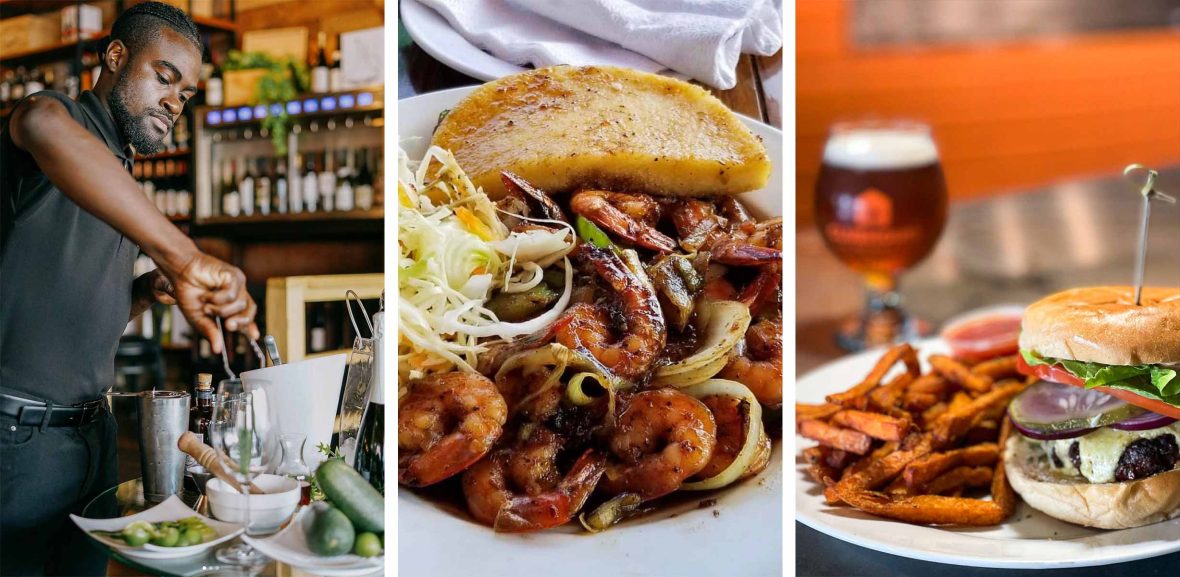
Cultural roots run deep in Kingston, and to begin your culture journey, first stop by Emancipation Park, the photo-op friendly, six-acre park commemorating the end of slavery in the British and French Caribbean. Don’t miss the 11-foot Redemption Song bronze statue, named for the Bob Marley song.
Then I suggest moving onto Devon House, famous for its eponymous ice cream and the Georgian-style mansion built in 1881 by George Stiebel, Jamaica’s first black millionaire. George was a trader who made his fortune in gold mining in South America, and today his former home holds a curated collection of French, Jamaican and English antiques and reproductions.
The global expansion of dancehall is rooted in the Jamaican diaspora and has grown in global influence, with artists such as Beyonce, Drake and Rihanna have built hits on its hard-driving bass lines.
For a deeply immersive cultural experience, take a guided tour of the Water Lane murals (there are over 100 of them!) of Kingston Creative in the Downtown Kingston Art District, also home to the historic National Gallery of Jamaica.
“We see Downtown Kingston as a forgotten jewel, the Old City has an energy of its own” says Doris Gross, Kingston Creative board director. “As a result of our transformative work… We have seen a steady growth of local and foreign visitors walking the streets, admiring creativity, the arts, and history.”
The most famous export of Kingston is reggae music, and so it’s no surprise that reggae fans the world over have long been making pilgrimages to the Bob Marley Museum and the Tuff Gong recording studio where it all began.
But today the sound of Jamaica, and the predominant music of Kingston, is dancehall.
Dancehall is a genre of music (evolved from reggae), a style of dance, and a living culture. The global expansion of dancehall is rooted in the Jamaican diaspora and has grown in influence, with artists such as Beyoncé, Drake and Rihanna having built hits on its hard-driving bass lines.
Originally called ‘dub’, the drum and bass sound soon became known as ‘dancehall’ due to the dance halls where massive sound systems (groups of MCs with huge speakers) would play to crowds.
To get the scoop on all things dancehall, I consult with another cousin Raquel Monteith, the reigning dancehall queen. A member of Kingston Creative and renowned dance group Team Cautiion, Raquel is a formally trained dancer with a degree in dance, who travels the world teaching dancehall to packed studios. She describes dancehall as “more than the music and the dance; it’s a culture and a way of life that allows for individual expression.”
“Many tourists come to Jamaica every year just to learn dancehall,” she says. Raquel’s dancehall recommendations? Hit the street parties like Dancehall Mondays at Savannah Plaza in the Half Way Tree neighborhood, Boom Sundays at 5 Grants Pen Road, and Dance All Fridays at Mystic Plaza. It’s best to go to these dance spots with a local who can orient you to the area. And don’t worry about being in town on the weekend—dancehall parties happen all over the city every night of the week.
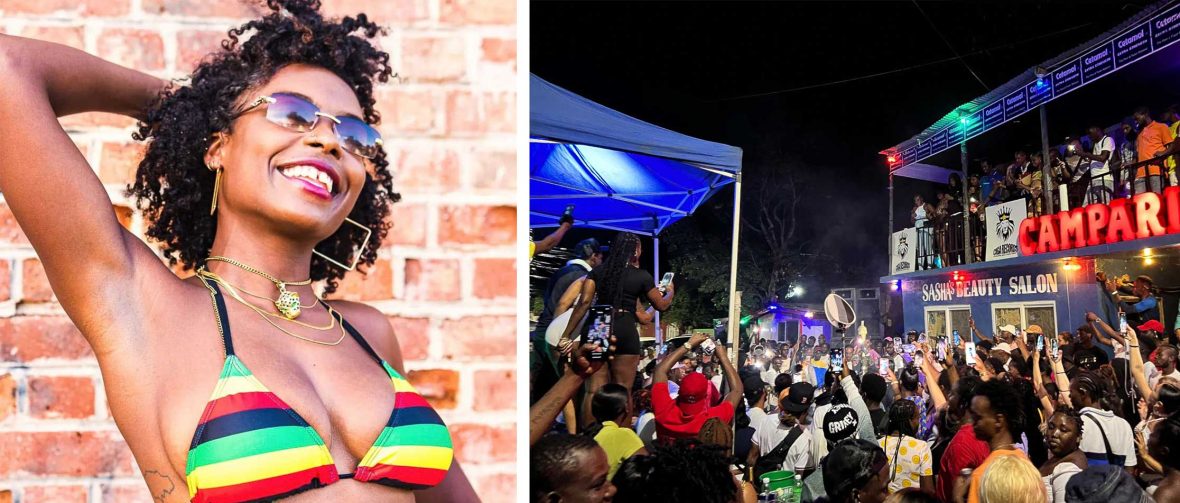
It’s just one part of the vibrant, thriving puzzle that makes Kingston so unique. Yes, Kingston has been a place of political violence, and like any big city, there are some neighborhoods that are safer than others, but in recent years Kingston has evolved. and is continuing to evolve, into a place where the beating pulse of Jamaican culture is on display in all its forms.
Every time I visit Kingston, my ‘real Jamaica’, there are new residential neighborhoods coming alive, new places to indulge in innovative menus, and new ways to be entertained.
As my cousin Emprezz says: “From the music studios where reggae legends have recorded their iconic tracks to the television stations that bring Jamaican stories to life, Kingston is a melting pot of artistic expression”.
****
Adventure.com strives to be a low-emissions travel publication. We are powered by, but editorially independent of, Intrepid Travel, the world’s largest travel B Corp, who help ensure Adventure.com maintains high standards of sustainability in our work and activities. You can visit our sustainability page or read our Contributor Impact Guidelines for more information.

Ruth C. White is a UK-born professor, DEI professional, and therapist/coach who has lived in Canada, the USA, and Jamaica, where her family has deep roots. She has traveled solo to dozens of countries, rafted the rapids of the White Nile, kayaked across the San Juan Islands, and is passionate about experiencing locales from a deeply local point-of-view. Though she loves wandering solo, her favorite travel companion is her adult daughter Maya.
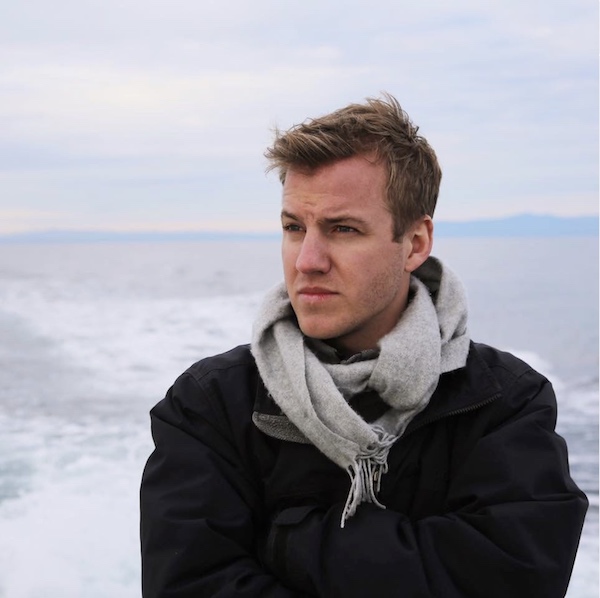





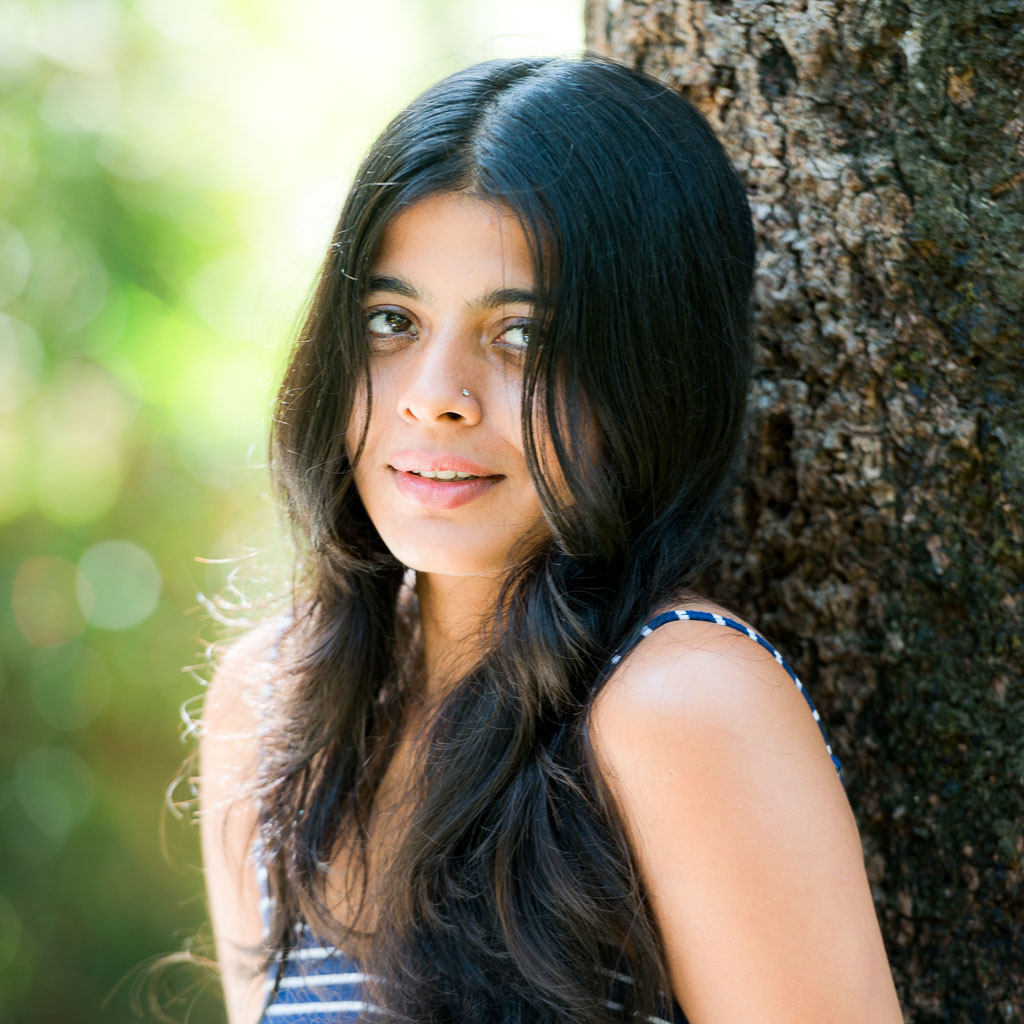

Can't find what you're looking for? Try using these tags: